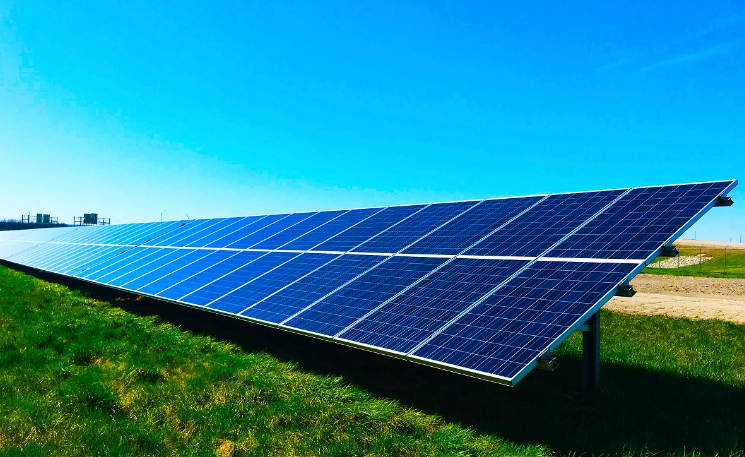Karen Wallace: Hi, I'm Karen Wallace for Morningstar. When people think of ESG risk, they tend to think of natural-resources strategies like miners or oil drillers that have a high environmental impact as well as social and governance issues relating to community relations, health, and safety. And they're not wrong. Those types of issues do have high ESG risk. But as my colleague Dan Lefkovitz from Morningstar Indexes recently found, there are other types of strategies that also court higher ESG risks. Some of them are really surprising.
Dan, thanks for being here to discuss this.
Dan Lefkovitz: Thanks for having me, Karen.
Wallace: Dan, let's start by just kind of explaining: What are ESG issues? What is the E, what's the S, and what's the G?
Lefkovitz: Yeah, so Sustainalytics--which is a Morningstar company that's focused on ESG-related research and ratings--they've developed a framework to assess ESG-related risks that culminates in an ESG Rating that they give to companies. And they've identified 20 distinct, what they call MEIs, material ESG-related issues. And these range from carbon emissions and waste management on the environmental side to human capital, product safety, data privacy on the social side, and things like business ethics on the governance side.
Wallace: We refer to these issues as risks. How do they pose risks to a business?
Lefkovitz: Yeah, so they call them material ESG issues because they have the potential to materially impact a company's enterprise value. And if you think about companies like BP, or Volkswagen, Johnson & Johnson, Equifax--these are all companies that had major problems related to ESG that impacted financial results and delivered a painful experience to investors. So there certainly are a lot of risks that stem from these ESG-related issues. But I think it's important to acknowledge that for some investors, ESG is all about values. For some asset owners, it's about aligning a portfolio with an organizational mission. For some advisors, it's about assessing portfolio exposures to things that matter to their clients. For some institutions, it's about regulatory compliance or reporting. It's really a multifaceted thing.
Wallace: At Morningstar, we have a rating that assesses how much unmanaged ESG risk our company has. If you go to a company's Quote page on Morningstar.com, you hit the Sustainability tab, and you can see the Risk Rating Assessment: 5 globes means there's Negligible ESG risk; 1 globe means that the company is exposed to a lot of ESG risk.
Dan, you've taken these company scores, and you've looked at them in aggregate across different indexes. And you've seen some places where both ESG risk and carbon risk are elevated. There were some surprises. The first surprise was renewable energy. Dan, this did surprise me.
Lefkovitz: I was surprised as well. I think there are a few things going on here. So if you look at Morningstar's Renewable Energy Index--first, it contains a lot of companies that are involved in both traditional fossil-fuel-based power generation as well as renewable energy, some utilities. So that's going to raise the overall carbon intensity of the index. Second, you have some companies that are involved in manufacturing clean energy solutions, things like wind turbines and solar panels. Those products are clean, but the operations, the manufacturing processes, are carbon-intensive. And then finally, you have a company like Tesla that is producing a clean energy solution, but it has other ESG risks, including human capital and product governance.
Wallace: There were some other hotspots for ESG risk: equity-income strategies. Dividends--that surprised me.
Lefkovitz: Investors love dividends for income, for total return. Dividend investing often takes you to the value side of the market, and sectors like energy, basic materials, utilities, industrials--they tend to be high in dividends but also in ESG risk and carbon intensity. But I would distinguish between traditional equity-income, high dividend, which tends to be more of a value strategy, and dividend growth. If you look at the top two constituents of Morningstar's Dividend Growth Index, they're Microsoft and Apple. And those are both 4-globe companies.
Wallace: And minimum volatility. So, for investors who aren't aware, this is sort of an equity strategy that aims to have less price volatility than a broad market index. You're seeing some elevated risks there as well. Can you talk about that?
Lefkovitz: If you look at Morningstar's Minimum Volatility Index, which I think is representative, it has twice as much exposure to both utilities and basic materials as the overall equity market. So it's a sector story there as well.
Wallace: Finally, let's take a look at the lower-risk spectrum. These were the indexes that didn't have a lot of ESG, or carbon concentration--the Wide Moat Index and also the Exponential Tech indexes. And you mentioned that you weren't really surprised to see these two there.
Lefkovitz: Moat is Morningstar's proprietary forward-looking definition of corporate quality. A company that has a moat around its business has a sustainable competitive advantage. And we've observed consistently that companies that score well for quality also have low ESG risk and low carbon intensity. So I wasn't surprised to see that relationship reinforced there between quality and ESG. And then exponential technologies focuses on companies that are involved in innovation and disruptive technologies. It's heavy on the technology sector, healthcare, communication services, and those are sectors that tend to be lower on the ESG-risk and carbon-intensity side.
Wallace: Dan, thanks so much for being here to discuss your research. As investors, we're becoming more aware of ESG, and we're always looking to find risks in our own portfolios.
Lefkovitz: Thanks so much for having me, Karen.
Wallace: Thanks. For Morningstar, I'm Karen Wallace.







:quality(80)/cloudfront-us-east-1.images.arcpublishing.com/morningstar/6BCTH5O2DVGYHBA4UDPCFNXA7M.png)












